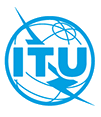Enhancing competitiveness in the Caribbean through the harmonization of ICT Policies, Legislation and Regulatory Procedures (HIPCAR)
| Project No | 7RLA08006 | |
| Title | Enhancing competitiveness in the Caribbean through the harmonization of ICT Policies, Legislation and Regulatory Procedures (HIPCAR) | |
| Description | The HIPCAR project, which covers the ACP countries of the Caribbean, supports the Members States in close collaboration with the regional organizations to develop new regional policy & legislative ICT guidelines. In a second phase the project offers technical assistance to the 15 beneficiary countries for national transposition of the above regional guidelines. | |
| Area of Action |
Regulatory & Market Environment |
|
| Status | Implemented | |
| Time Frame | From 1/1/2008 To 30/9/2013 | |
| Related ITU Webpages | ||
| Beneficiary Countries | Barbados, Bahamas (Commonwealth of the), Dominica (Commonwealth of), Dominican Republic, Grenada, Guyana, Haiti (Republic of), Jamaica, Saint Kitts and Nevis (Federation of), Saint Lucia, Saint Vincent and the Grenadines, Suriname (Republic of), Trinidad and Tobago | |
| Implementing Agency | ITU | |
| Cooperation Agency | Ministries of Communications, Regulatory Bodies, Regional Organizations | |
| Case Study - Americas Region |
|
|
| Financial Scale (CHF) | More than 1'000'000 | |
| Achievements |
The project ‘Enhancing Competitiveness in the Caribbean through the Harmonization of ICT Policies, Legislation and Regulatory Procedures’ (HIPCAR) was executed from 2008 to 2013 and jointly funded by European Commission and ICT Development Fund. The project focused on the Caribbean countries among the ACP Group of States and was implemented within the framework of the Caribbean Single Market and Economy (CSME), the CARICOM Connectivity Agenda, and the region’s commitments to the WSIS and the Millennium Development Goals (MDGs). The project’s results were achieved by means of assistance to both the regional organisations and individual countries on the development and promotion harmonised ICT policies and regulatory frameworks in relation to the region’s ICT markets. The benefits of this project were recognized both at the national level - through the provision of in-countries assistance to Barbados, Grenada, Republic of Haiti, Jamaica, Saint Christopher and Nevis, Saint Lucia, St. Vincent and the Grenadines, Republic of Trinidad and Tobago – but also at the regional level as the project fostered a more harmonized and enabling policy and regulatory environment for a competitive regional market. |
|
|
Request more information about this project |
||


